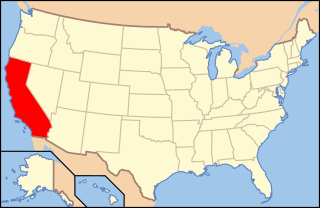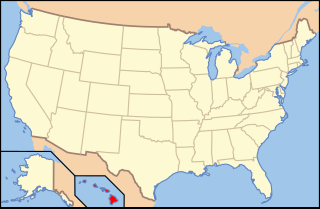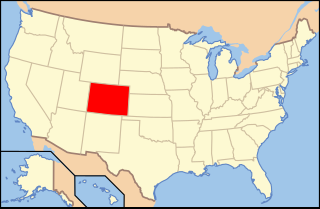See also
- Timeline of LGBT history — timeline of events from 12,000 BCE to present
- LGBT rights by country or territory — current legal status around the world
- LGBT social movements
| |||
|---|---|---|---|
| +... |
This is a list of notable events in the history of LGBT rights that took place in the year 1975.
This is a list of notable events in the history of LGBT rights that took place in the year 1993.
This is a list of notable events in the history of LGBT rights that took place in the year 1972.
This is a list of notable events in the history of LGBT rights that took place in the year 2005.

Lesbian, gay, bisexual and transgender (LGBT) rights in the United States rank among the most advanced in the world, with public opinion and jurisprudence changing significantly since the late 1980s.
This is a list of notable events in the history of LGBT rights that took place in the 1970s.
The history of LGBT residents in California, which includes centuries prior to the 20th, has become increasingly visible recently with the successes of the LGBT rights movement. In spite of the strong development of early LGBT villages in the state, pro-LGBT activists in California have campaigned against nearly 170 years of especially harsh prosecutions and punishments toward gays, lesbians, bisexuals, and transgender people.

California is seen as one of the most liberal states in the U.S. in regard to lesbian, gay, bisexual, transgender (LGBT) rights, which have received nationwide recognition since the 1970s. Same-sex sexual activity has been legal in the state since 1976. Discrimination protections regarding sexual orientation and gender identity or expression were adopted statewide in 2003. Transgender people are also permitted to change their legal gender on official documents without any medical interventions, and mental health providers are prohibited from engaging in conversion therapy on minors.

The establishment of lesbian, gay, bisexual, and transgender (LGBT) rights in the U.S. state of Connecticut is a recent phenomenon, with most advances in LGBT rights taking place in the late 20th century and early 21st century. Connecticut was the second U.S. state to enact two major pieces of pro-LGBT legislation; the repeal of the sodomy law in 1971 and the legalization of same-sex marriage in 2008. State law bans unfair discrimination on the basis of sexual orientation and gender identity in employment, housing and public accommodations, and both conversion therapy and the gay panic defense are outlawed in the state.

In the District of Columbia, lesbian, gay, bisexual, and transgender (LGBT) people enjoy the same rights as non-LGBT people. Along with the rest of the country, the District of Columbia recognizes and allows same-sex marriages. The percentage of same-sex households in the District of Columbia in 2008 was at 1.8%, the highest in the nation. This number had grown to 4.2% by early 2015.

Lesbian, gay, bisexual, and transgender (LGBT) rights in the U.S. state of Washington have evolved significantly since the late 20th century. Same-sex sexual activity was legalized in 1976. LGBT people are fully protected from discrimination in the areas of employment, housing and public accommodations; the state enacting comprehensive anti-discrimination legislation regarding sexual orientation and gender identity in 2006. Same-sex marriage has been legal since 2012, and same-sex couples are allowed to adopt. Conversion therapy on minors has also been illegal since 2018.

Lesbian, gay, bisexual, and transgender (LGBT) persons in the U.S. state of Hawaii enjoy the same rights as non-LGBT people. Same-sex sexual activity has been legal since 1973; Hawaii being one of the first six states to legalize it. In 1993, a ruling by the Hawaiʻi Supreme Court made Hawaii the first state to consider legalizing same-sex marriage. Following the approval of the Hawaii Marriage Equality Act in November 2013, same-sex couples have been allowed to marry on the islands. Additionally, Hawaii law prohibits discrimination on the basis of both sexual orientation and gender identity, and the use of conversion therapy on minors has been banned since July 2018. Gay and lesbian couples enjoy the same rights, benefits and treatment as opposite-sex couples, including the right to marry and adopt.

Lesbian, gay, bisexual, and transgender (LGBT) persons in the U.S. state of Colorado enjoy the same rights as non-LGBT people. Same-sex sexual activity has been legal in Colorado since 1972. Same-sex marriage has been recognized since October 2014, and the state enacted civil unions in 2013, which provide some of the rights and benefits of marriage. State law also prohibits discrimination on account of sexual orientation and gender identity in employment, housing and public accommodations and the use of conversion therapy on minors. In July 2020, Colorado became the 11th US state to abolish the gay panic defense.

Lesbian, gay, bisexual, and transgender (LGBT) persons in the U.S. state of Rhode Island enjoy the same legal rights as non-LGBT people. Rhode Island established two types of major relationship recognition for same-sex couples, starting with civil unions on July 1, 2011, and then on August 1, 2013 with same-sex marriage. Discrimination on the basis of sexual orientation and gender identity is outlawed within the state namely in the areas of employment, housing, healthcare and public accommodations. In addition, conversion therapy on minors has been banned since 2017.

Lesbian, gay, bisexual, and transgender (LGBT) persons in the U.S. state of Alaska may face some legal challenges not experienced by non-LGBT Alaskans. Since 1980, same-sex sexual conduct has been allowed, and same-sex couples can marry since October 2014. The state offers few legal protections against discrimination on the basis of sexual orientation and gender identity, leaving LGBT people vulnerable to discrimination in housing and public accommodations; however, the U.S. Supreme Court's ruling in Bostock v. Clayton County established that employment discrimination against LGBT people is illegal under federal law. In addition, four Alaskan cities, Anchorage, Juneau, Sitka and Ketchikan, representing about 46% of the state population, have passed discrimination protections for housing and public accommodations.

LGBT history in the United States spans the contributions and struggles of lesbian, gay, bisexual, and transgender (LGBT) people, as well as the LGBT social movements they have built.

Lesbian, gay, bisexual, and transgender (LGBT) rights in Guam have improved significantly in recent years. Same-sex sexual activity has not been criminalized since 1978, and same-sex marriage has been allowed since June 2015. The U.S. territory now has discrimination protections in employment for both sexual orientation and gender identity. Additionally, federal law has provided for hate crime coverage since 2009. Gender changes are legal in Guam, provided the applicant has undergone sex reassignment surgery.

This article addresses the history of gay men in the United States. Unless otherwise noted, the members of same-sex male couples discussed here are not known to be gay, but they are mentioned as part of discussing the practice of male homosexuality—that is, same-sex male sexual and romantic behavior.
Paul Barwick is an American former LGBT rights activist and same-sex marriage pioneer. In 1972, he filed one of the first lawsuits in the history of the United States regarding the right of gays and lesbians to marry, after he and the late fellow activist John Singer were denied a civil marriage license at the King County Administration Building in Seattle, Washington. The case, Singer v. Hara, was the best-known gay marriage case in the state of Washington until Andersen v. King County in 2006. He moved to San Francisco, California, which was his residence for 30 years, but he now currently lives in Centralia WA.
The history of LGBT residents in South Dakota spans back to precolonial Native American times, but has become much more visible in the 21st century.

This is a timeline of notable events in the history of the lesbian, gay, bisexual, and transgender community in the United States.
After years of lobbying, and after the adoption of the explicit privacy language in the California Constitution, a consenting adults law was enacted in 1975.